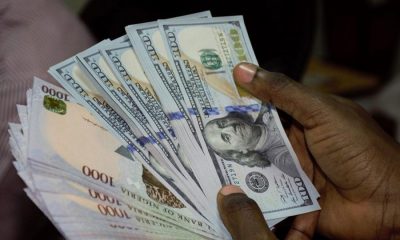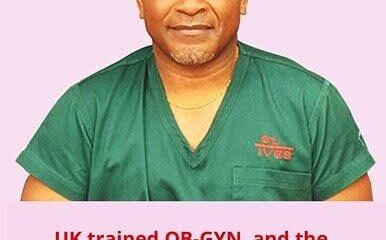The Federal Government has directed the Nigeria Customs Service to ground 91 private jets belonging to some wealthy Nigerians over their alleged refusal to pay import duties running to over N30bn.
As such, the Comptroller-General of Customs, Col Hameed Ali, (retd.) following a directive from the Presidency, has written a letter to the Nigerian Civil Aviation Authority, the Federal Airports Authority of Nigeria, and the Nigerian Airspace Management Agency asking the agencies to ground the affected private jets with immediate effect.
The letter, with reference number NCS/T&T/ACG/042/s.100/VOL.II, which was dated November 2, 2021, was addressed to the Director-General, NCAA, Capt Musa Nuhu.
A copy of the letter, which was obtained by one of our correspondents, was also addressed and sent to the Managing Director, FAAN, Capt Rabiu Yadudu; and the Managing Director, NAMA, Capt Fola Akinkuotu.
The letter directed the aviation agency regulator (NCAA), the nation’s airspace management agency (NAMA), and airport management agency (FAAN), to ground the private jets by denying them administrative and operational flight clearances indefinitely.
Findings by our correspondent revealed that the letters were received by the aviation agencies on November 8, 2021.
According to documents sighted by one of our correspondents, the NCS letter to NAMA was delivered with reference code 19755747 by the courier company, while the NCS letter to FAAN was referenced 19755746 by the courier firm.
The NCS letter, which was delivered to the NCAA, was also referenced 19755748 by the courier firm.
It was titled, ‘Recovery of Aviation Import Duty on Privately Owned Aircraft Operating in the Country.’
The NCAA letter read in part, “The Federal Government in its drive for enhanced revenues has mandated the Nigeria Customs Service to immediately recover from defaulting private aircraft owners the required statutory import duties on their imported aircraft.
“You may wish to recall the verification exercise conducted by the NCS, initially scheduled for a 14 day period, but magnanimously extended over a 60-day period from 7th June through 6 August 2021, following a World Press Conference held on 31st May 2021. The outcome of the aforementioned verification exercise is a compilation of all private aircraft imported into the country without payment of statutory import duty.
“The Nigeria Custom Service, in line with its statutory functions, is empowered by Part 111 Sections 27, 35, 37, 45,46, 47, 52, 56,63 & 64; Part XI Sections 144, 145, 155, 160, 161& 164 and Part XII Sections 167, 168, 169, 173 & 174 of the Customs and Excise Management Act.”
It further read, “In this regard therefore, your full cooperation is being solicited to ensure the success of this initiative and that all such private aircraft owners or representatives are denied administrative and operational flight clearances indefinitely, until an NCS issued Aircraft Clearance Certificate is procured and presented to your organisation as proof of compliance.
“For the avoidance of doubt, ALL aircraft operated in accordance with the Nigerian Civil Aviation Authority’s regulation for the issuance of Permit for Non-Commercial Flight and those issued with Flight Operations Clearance Certificate and Maintenance Clearance Certificate accordingly are affected by this directive.
“Please find attached the list of all verified aircraft and indeed others of the Nigerian Civil Aviation Authority’s register, which may not have come forward for your record and necessary action. Strict compliance with this directive is to be ensured. Please accept the assurances of my highest regards and esteem as always.”
Independent findings by our correspondents revealed that some of the 91 private jets directed to be grounded belong to the senior pastors of some popular Pentecostal churches in the country, some Tier-1 banks with one of the banks owning two upmarket jets, the chief executive officers of some indigenous oil companies, and the chairmen of some Tier-1 banks.
“The 91 private jets owe import duties in excess of N30bn and the Federal Government has directed that the Customs must recover this money. This is why we have sent demand notices to the private jet owners,” a Customs source privy to the development told one of our correspondents on condition of anonymity.
Findings by our correspondents revealed that the NCS had in March this year embarked on a review of import duties paid on private jets brought into the country since 2006.
Following the alleged discovery that several private jets owners, under the guise of Temporary Import Permit, had failed to pay the statutory import duty to the coffers of the government, the CG of Customs, Ali, set up a verification panel to review all TIPs and the relevant aircraft import documents of all private jets in the country.
At the end of the 60-day exercise, 57 private jets, which had licences for commercial charter operations, were cleared and issued Aircraft Operators Certificate by the Customs.
However, 29 private jets, whose owners came for the verification were found to be liable to pay the import duty.
The Customs also compiled a list of another 62 private jets whose owners failed to appear for the verification exercise but were found to be liable for import duty payment.
However, other private jets whose owners have commenced the process of paying their import duty have been given a 14-day ultimatum to clear the debts, while the list of the 91 private jets whose owners have yet to present themselves for import duty payment has been presented to the aviation agencies by the NCS for the immediate grounding of their flight operations.
According to independent findings by our correspondents, some of the owners of the 91 jets have written protest letters to the NCS, arguing they cannot pay import duties on the planes because the jets are under lease payments.
The Customs, in its response to the letters, queried the rationale for bringing in the planes and allegedly fraudulently exporting them under questionable documentation processes in the past 10 years.
However, in a new twist to the development, there are strong indications that the Ministry of Aviation has directed the NCAA, FAAN, and NAMA to suspend the grounding of the flight operations of the affected private jets, according to aviation sources.
Sources at the aviation agencies said the aviation ministry had directed the CEOs of the agencies to put the implementation of the NCS directive on hold until a clearance from the ministry was obtained.
The development could not be verified as of press time on Sunday but findings from the control towers and NAMA revealed that some of the jets were still being cleared to fly.
Meanwhile, there are indications that the Customs may clash with the aviation ministry over the development as sources said the NCS officers might begin to impound the affected private jets any time soon.
A cursory look at the list of private jets shows that majority of them are upmarket aircraft.
Some of the top brands among the 29 private jets whose owners came for the Customs verification exercise are: Dassault Falcon 7X, Falcon 900EX, Hawker 4000, Bombardier BD 700 1A10, Bombardier Global 5000, Bombardier Global 5500, Bombardier Challenger 605, Gulf Stream Aerospace, Bombardier BD 700,, and Bombardier Challenger 604.
Others are Embraer 505, Bombardier Global 6000, Embraer Legacy 600, Embraer Legacy 650, Bombardier INC CL 600-2B19, Challenger 601 3A-ER, Gulfstream G-IVSP, Gulfstream G450, Gulfstream G550, HS125-B50XP, EMB505 Phenom 300, Cirrus SR 20V, and Hawker 800XP
On October 13, 2021, the NCS had published a list of 57 private jets cleared for commercial charter in a newspaper publication, following the 60-day verification exercise. It also published a list of 29 and 62 private jets liable to pay import duty.
Some of the jets go for over $50m each, according to a finding by one of our correspondents.
Meanwhile, the Chairman and Chief Executive Officer of Quits Aviation Services Limited, Sam Iwuajoku, had on October 13, 2021, said private jets operating in Nigeria ought not to be requested to pay any further levy.
Iwuajoku reportedly said the NCS ought to know that aircraft registered outside Nigeria does not operate permanently in the country and therefore ought not to pay the tax.
Iwuajoku, whose firm operates the Quits Aviation Services Free Trade Zone, spoke against the backdrop of the publication by the NCS on October 14, 2021, asking private jet owners to pay statutory import duties to the Federal Government.
“The amount of money these aircraft make for the Nigerian government is more than the cost of registration. They pay for their services in dollars, including landing and parking.
“The services they pay for are done in dollars and government agencies are benefiting, so Customs should look at the larger picture. Even if the money is not going to Customs, other government agencies are getting the money. The Nigerian Airspace Management Agency is paid by these operators in dollars,” he added.
However, industry stakeholders say there are regulations requiring taxes to be paid on a private jet inasmuch as the aircraft is domiciled in the country or staying for a relatively long period of time, say 60 days or 180 days, depending on the laws of the country.
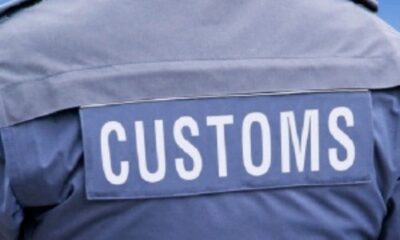
 BIG STORY19 hours ago
BIG STORY19 hours ago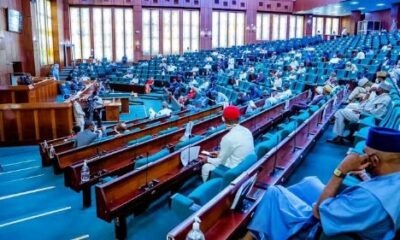
 BIG STORY5 days ago
BIG STORY5 days ago
 BIG STORY4 days ago
BIG STORY4 days ago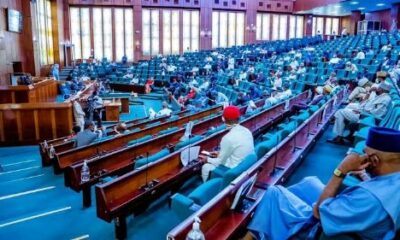
 BIG STORY5 days ago
BIG STORY5 days ago
 BIG STORY1 day ago
BIG STORY1 day ago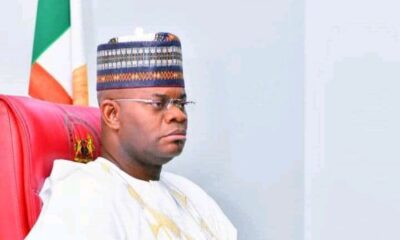
 BIG STORY4 days ago
BIG STORY4 days ago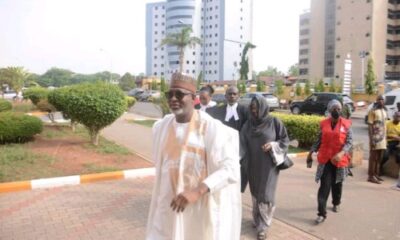
 BIG STORY5 days ago
BIG STORY5 days ago
 BIG STORY2 days ago
BIG STORY2 days ago








